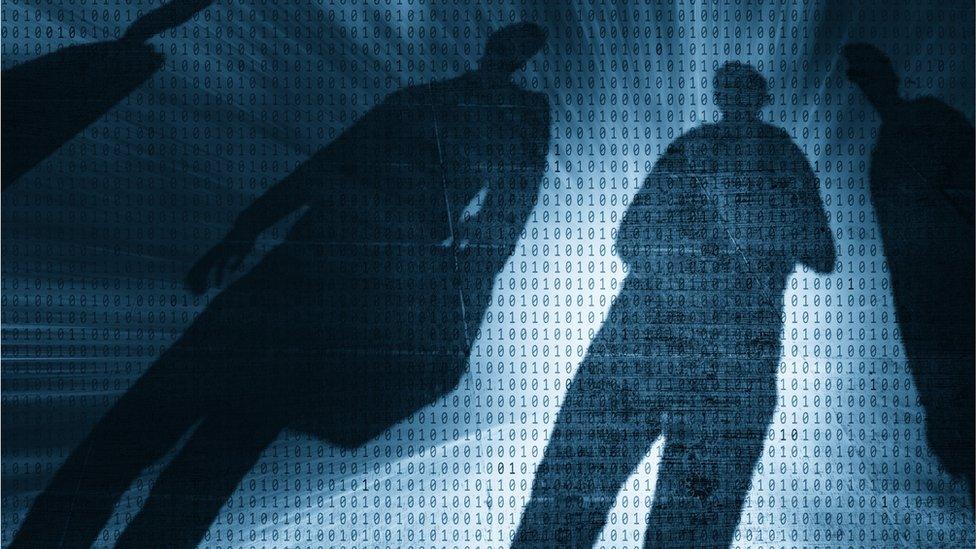Shadow Brokers move bitcoins after hacking tool auction
- Published

The Shadow Brokers claim to have more hacking tools for sale
Bitcoins worth Ā£18,500 ($24,000) that were sent to hacker group the Shadow Brokers have been moved.
The funds were received during an auction of hacking tools that failed to attract much interest before the group eventually released the tools for free.
One leak included an exploit that helped the WannaCry ransomware to spread around the world.
This tool and others are believed to have been stolen from the US National Security Agency (NSA).
The agency has not confirmed or denied this.
The bitcoins have been moved to multiple addresses, leading some commentators to think that the Shadow Brokers plan to obfuscate the transactions, before perhaps exchanging the bitcoins for traditional currency.
"Ever since the Shadow Brokers announced themselves, I've had an alarm on their bitcoin wallet just monitoring any changes," cyber-security expert Mikko Hypponen at F-Secure told the “óĻó“«Ć½.
"I was surprised when I got an alert that they had emptied the wallet."
Mr Hypponen added that it was unusual to see such activity because the value of the bitcoins was so small and by withdrawing them the hackers risked revealing their identity.
Because of this, Mr Hypponen believes the move may simply be "a wild goose chase" - though some resulting transactions .
Security expert Mikko Hypponen spotted the bitcoins had been moved
The group also posted a message in which it claimed to be launching a monthly subscription service for followers to receive more exploits and hacking tools.
It has asked interested potential subscribers to send 100 ZEC - another crypto-currency called Zcash - worth Ā£18,600 to a specific address.
The group said it would send payment confirmation to the email address provided by subscribers and, between 1 and 17 June, would release a link and password to a new dump.
However, it did not release any details of what the cache would contain.
"TheShadowBrokers is not deciding yet," the group wrote in characteristically broken English. "Something of value to someone."
The lack of any hint as to what might be in the future dump was a cause for concern, said Matthew Hickey of cyber-security firm Hacker House.
"We have seen to-date that they have had powerful tools in their arsenal - we can only assume that they do have more exploits and they want to capitalise," he said.
He said his firm was considering paying the Ā£18,600 in Zcash so that any serious exploits could be analysed and potentially patched before causing a WannaCry-like malware outbreak.
"I hate the idea of paying money to these clowns," said Mr Hypponen, who also noted that Zcash transactions would be harder to trace than Bitcoin ones.
"But the previous leak did lead to WannaCry so this is important - the stuff they have is very good [sophisticated]."
- Published10 April 2017
- Published16 August 2016